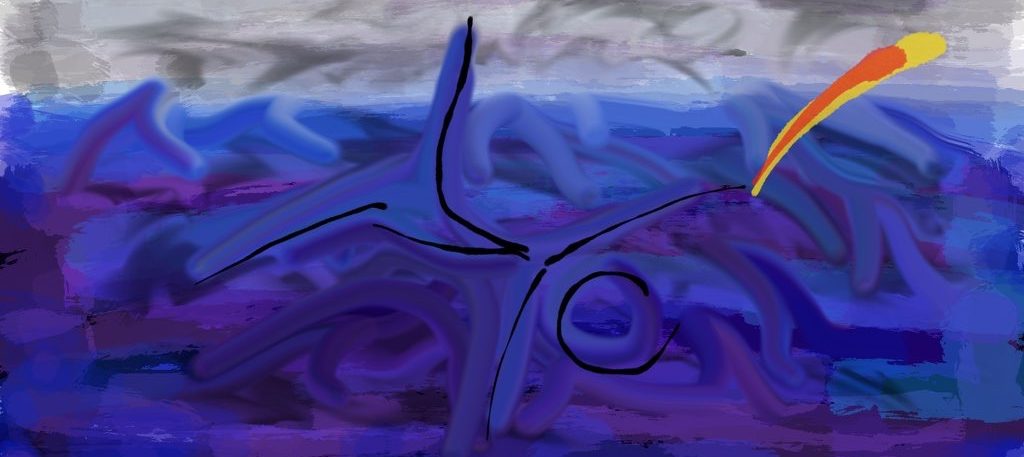Choose at least one of the resources to watch or listen to. The point is not to agree or disagree with the resources, but to develop the capacity to analyze them critically and empathetically (from the point of view of the person who offered it): to ponder the challenges, paradoxes and complexities that they faced as they tried to communicate a difficult topic. You are invited to identify the good, the bad and the ugly, without maneuvering the analysis/argument towards what could make you look and/or feel good or smart (the task is to stay with the trouble and to learn to do it with humility and hyper-self-reflexivity…)
| Ninawa Huni Kui on the collective dis-ease (Links to an external site.) [17:44 min]
Donna Haraway on staying with the trouble (Links to an external site.) [1:20:16 min] Alexis Shotwell on despair and purity (Links to an external site.) [45 min] adrienne maree brown on emergent strategies in social justice (Links to an external site.) [1:01:14 min] Bayo Akamulafe on where to go (Links to an external site.) [1:00:02 min] Vanessa Andreotti and Dougald Hine, Homeward Bound (Links to an external site.) (password: zaunreiter) Resma Menaken – Somatic Abolitionism (Links to an external site.) [1:04:01 min] Emergence network: “What could possibly go right?” (Links to an external site.) series – select one Tricia Hersey on Rest as Resistance [1:11:09 min] |
These questions might help you sit with the complexities of the documentaries:
- What is the documentary trying to critique? What is the the documentary trying to propose? Is the documentary advocating for soft reform, radical reform or beyond reform of the house of modernity? What are the gifts and limits of the documentary’s critiques and propositions?
- To what extent do the documentaries challenge and/or reproduce HEADS UP?
- What questions, issues or thoughts did the documentary(s) evoke for you? Check what is going on in your “bus”. Check the motion of the bus as well: is it moving? stopped? how is the road? is it straight? winding? up? down? is the bus going around in a roundabout? what is the weather inside and outside the bus? What is your analysis of your cognitive and affective responses (of what is going on in your bus)? What are you learning about yourself from observing your bus?
- Pay attention to which elements, themes, passages or statements of the material impact your body and where. What are you noticing? Are you feeling constriction, tightness, tension, pressure, tingling, opening or lightness? Where in your body are you noticing these feelings? Is your posture shifting? Are you folding in or straightening up? Are you clenching your teeth or bringing your shoulders to your ears? What are these responses revealing to you?
- What is the relevance and implications of the documentary(ies) for your context, roles and sense of self? Make notes about the documentary for your assignment.
